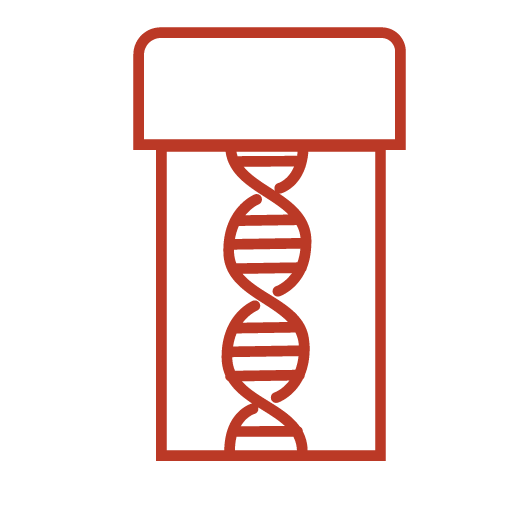Pharma-
cogenomic Testing
Pharmacogenomic (PGx) testing combines the knowledge of how drugs work (pharmacology) with the science of the human genome (genomics). It assesses the impact of genetic factors on an individual’s response to drugs. A participant’s complete drug regimen is reviewed, including their drug-gene and multi-drug interactions and phenoconversions. Interventions may include monitoring or changing medications and altering dosages.

PGx in practice
When evaluating patient responses to medication therapy, providers may wonder:
- Why does this drug work for one patient but not another?
- Why does this patient need much more (or much less) than the standard dose of the drug for it to be effective?
- Why does this patient have side effects, while others do not, even though the drug and dose are similar?

Pharmacogenomic testing, also called drug-gene testing, can help answer these questions and guide more precise, individualized prescribing. Using these results, one of our clinical pharmacists provides a personalized consultation for prescribers—and provide years of benefits.
“It’s a different way to practice. It’s reinventing the way you think about prescribing.”
–PACE medical director
Pharmacogenomic testing explained
The Basics
Robert Alesiani, PharmD, BCGP, Chief Pharmacotherapy Officer, Tabula Rasa HealthCare, presents the benefits of testing participants and the process of PGx testing.
The value and ROI
George W. Brett, MD, Senior Vice President of Consulting and Chief Medical Officer, Capstone Risk AdjustmentTM, and former PACE Medical Director, describes the results when his program implemented a PGx testing program.
Or explore this study on the return on investment (ROI) associated with PGx testing for clinical pharmacies.

The results
Discover how two programs utilized PGx testing for improved outcomes:
PACE case: Individualizing medication recommendations using pharmacogenomic test results
TRU PACE: Innovative pharmacy solutions for a PACE start-up

